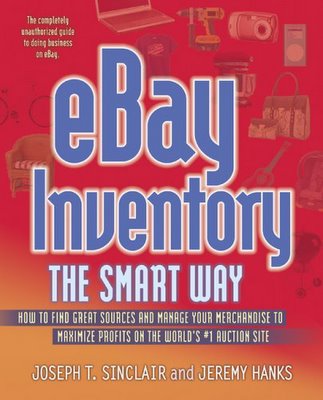
I have to give a presentation about reading tonight at the first meeting of my ward's book club. I had no idea what to talk about so I spent my afternoon writing down some of my ideas about what I think about reading. Of course, I'm not going to deliver this in talk format. I hope I can be a little more conversational, but at least I was able to solidify a few things in my mind. Here's what I wrote, as well as the text for the handout that I think I'm going to do. Warning--this is very long!
Reading has always been an important part of my life. I remember the first time I discovered the power of books. I was probably 12 and my parents had decided that I was old enough to fast for both meals on Fast Sunday. Fast Sunday morning rolled around. I woke up and soon got hungry. I tried to come up with a way to take my mind off of my discomfort and the thought occurred to me that I could get back in bed and read a book. It was a Babysitter’s Club book. I read in bed until the book was done and then began another. By the time we had to leave for church I had read two Babysitter’s Club books in their entirety.
This wasn’t the beginning of my love of books. I remember being more excited about the book fair at school than anything else. When I was in 6th grade, a new girl at a new school, in a new city, I quickly found friends that loved reading as much as I did—friendships that to this day I still maintain. We read books titled after girls names—Heidi, Raquel, Samantha—historical fiction romances aimed at adolescent girls. Then there was my 7th grade year. My Language Arts teacher had us keep a list of all the books we read during the school year. I read 93. I still have the list in a box in my basement somewhere. But the Fast Sunday experience taught me that reading can take you places. It can help you put your cares and worries aside for a time. When I become absorbed in the pages of a book it becomes my world.
As I grew older, I also found that reading was a great way to learn. Surprisingly, this is more of a recent discovery. It’s no surprise. In a recent BYU Forum address historian, and author David McCullough discussed briefly the fact that many of the Founding Fathers had no more than an elementary education. What set them apart was that simply because they had completed their formal education, they never stopped trying to educate themselves. They accomplished this by reading. He says, “It was an Age of Enlightenment, an era when it was widely understood that if you wanted to know something, a good way to learn was to read books—a very radical idea to many in our day and age.” I agree with McCullough. I had certainly not approached reading as a way to learn. I told myself that I was reading to gain an understanding of other people and ways of life. But this was in the context of the novel, and I have since some to think that there is little in novels at least modern novels, to learn from. What I mean is that I never used reading as a way to learn about subjects in depth. As an English major at BYU I used the library for every class I took. I had to read a lot of literary criticism when I wrote papers about novels. However, I don’t think I ever read even a chapter of a book in it’s entirety unless it was specifically assigned. Instead I would use the index to find the parts of books that supported my arguments and read only those parts. I look back on that method of research now and my first thought is that I wasted a lot of good reading—even though there was no way I could possibly have had time to do in depth research for every paper I wrote.
Today I read for several reasons, namely entertainment, education and example.
Entertainment is a huge reason for me to read. I love novels. My university training helps me to read works of fiction looking for truth. Part of reading for entertainment includes participating in a book club that I’ve been a part of since I was married almost seven years ago. The girls in my book club have become my greatest friends. The discussion of books (and getting together to eat and visit) has helped us get to know each other better and more intimately than I probably would have known them otherwise.
I also read to learn. I have discovered a love for nonfiction that I never knew I had. I particularly enjoy reading histories and biographies. I’m grateful that I have the leisure to read about the topics of my choosing. Some of my favorites are Tudor England, Rennaisance Art and CS Lewis. I find that my interests are influenced by several things. Novels are a good influence. I read a novel called The Other Boleyn Girl that made me want to learn as much as I could about Tudor England. The lives of King Henry VIII and Queen Elizabeth I are fascinating to me. Some art plate in the middle of one of my books led me to see the differences between English Renaissance art and Italian Renaissance art, and led me to want to read about Italian art. I found a great book called Michelangelo and the Pope’s Ceiling about the ceiling of the Sistine Chapel that I found very enjoyable and entertaining. The release of the movie The Lion the Witch and the Wardrobe caused me to want to learn more about CS Lewis, so I read a biography called The Narnian: The Life and Imagination of CS Lewis, which gave me some fascinating insights into the life and mind of CS Lewis that I couldn’t have gotten anywhere else. And speaking of the cyclical nature of my reading interests, The Narnian also gave me insights into the English social and educational systems that were invaluable to my reading of the Forsyte Sage, a series of novels that takes place in England during the same time that CS Lewis was a student and public figure. I find that as I indulge in my interests the books sort of work as great cross references for each other
Finally, I read as an example for my daughter, Kaitlin. In March 1994 President Hinckley gave an address to the Washington DC Chapter of the BYU Management Society. It was entitled Four Simple Things to Help Our Families and Our Nations. He said, “The Observance of four simple things on the part of parents would in a generation or two turn our societies around in terms of their moral values. They are simply these: Let parents and children (1) teach and learn goodness together, (2) work together, (3) read good books together, a (4) pray together.” Concerning reading he said, “I feel sorry for children who do not learn the wonders to be found in good books, or how stimulating an experience it is to get into the mind of a great thinker as that person expresses himself or herself, with language cultivated and polished, concerning great and important issues.” I believe that if you let your children see you reading then they too will want to read. I can attest to this. Right now I make sure that Kaitlin sees me reading all sorts of materials—books, magazines, the newspaper and even the Internet. Besides the rituals of reading that we go through daily, reading board books in the morning, reading picture books before naptime and bedtime, she also has to have an ad to look at from the Sunday paper while she eats her breakfast. She’s not even two yet. I hope to instill good reading habits in her at an early age so that she too can partake of the enjoyment that reading has brought to my life.
Ideas for Good Reading
1. Find an author that you really like and read everything he or she has written.
2. Find a place you enjoy reading. I read everywhere, but I particularly enjoy reading in bed, in my oversized chair or while soaking in a hot bath.
3. Find a topic you’re passionately interested in and read as much as you can about it.
4. Find other people who are interested in reading. Reading is a great way to connect with others.
5. Keep a reading journal. Find a journal that makes you happy and write down a brief synopsis of the book and what you thought about it. This way you’ll have a record of what you’ve read.
6. Enjoy yourself. Don’t feel guilty if you don’t like to read books that are considered “intellectual.” Reading’s reading—which is more mentally engaging than TV, and with the right book can be just as relaxing!
7. Indulge a little. Drink some hot chocolate or eat a little treat. Make reading something that you look forward to.
8. If you have no idea what to read try:
• going to a bookstore alone and browsing
• think of a book you’ve read and enjoyed in the past. Visit Amazon.com look it up and see what other people who’ve bought that book also bought. Make sure to read the reader comments—a great way to see what people think of the books you’re thinking about reading
• read a book that inspired a movie that you really liked
• getting a recommendation from a fried whose taste you trust!
Resources for reading suggestions and discussion
www.readinggroupguides.com online discussion guides for groups or just deeper individual thought on a large variety of books. Also a great place to find titles to read (includes synopsis of every book)
www.pemberley.com message board web site that has good discussion of all kinds of books, but mostly the "classics." I find that the participants on this site have generally high moral standards, and make good suggestions. Pemberley also has a good Recommended Reading page.
www.amazon.com look up books that you’ve read in the past to get recommendations for similar kinds of books
Local library. The librarians know what’s out there and how to point you toward something you might like. Also a resource for audio books if you want to listen to a book instead of reading it!
Bookstores like Barnes & Noble and Borders. They have great displays of books that are easy and quick to browse
www.google.com Look up books you’ve read for further information, historical background, author interviews, etc.
Entertainment section of newspapers and book review sections of magazines.





















